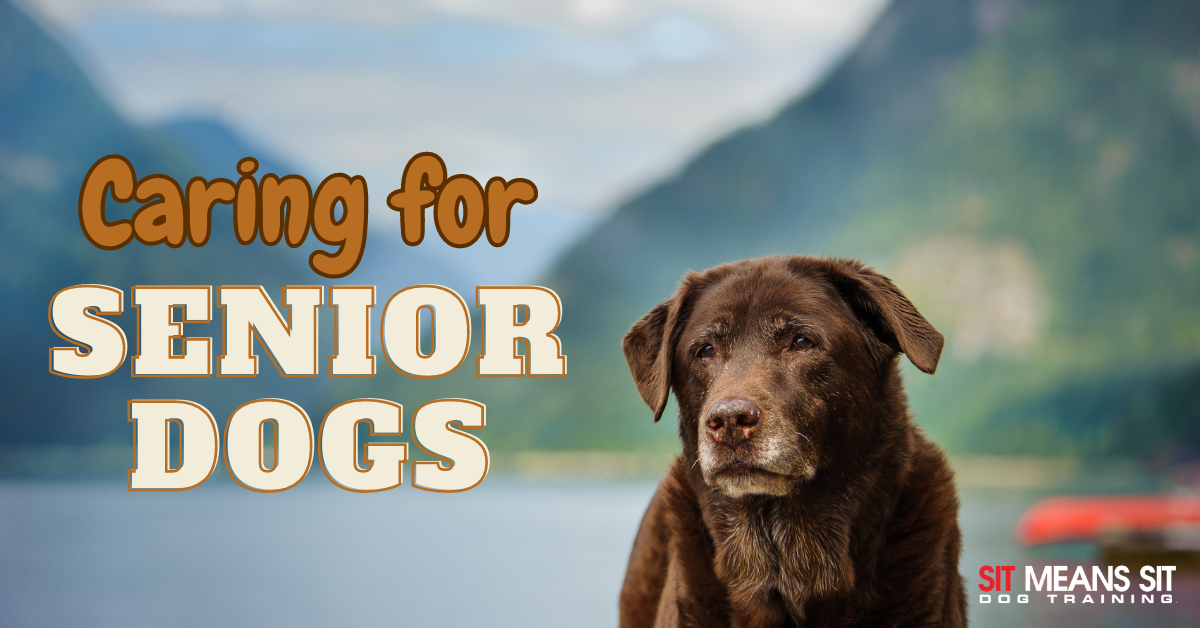
Tips for Caring for a Senior Dog
Whether we like it or not, all dogs age and eventually hit their senior years. What’s important to know is that as dogs age, their needs and requirements change. Here’s what you need to know in order to best support your senior dog.
Diet Changes
As dogs age, the nutrients they require from their food change. Older dogs are at a higher risk of obesity as their activity levels decrease. This means that your dog may need to switch to a food that has been specifically designed for senior dogs. These foods are often lower in fat and calories which will help manage your pet’s weight and keep them as healthy as possible.
To choose your pet’s food, consult your vet and do some research to find the best option for your dog.
Exercise
Getting older means your dog’s exercise habits will change. A dog that once went on daily 30-minute runs, may not be able to do so anymore.
You can talk with your vet about different options or exercise programs that will best suit your dog and their activity needs. Your dog will have limitations on their physical abilities as they age and is important to be sensitive to those limits.
Better options may include a slow walk around the neighborhood or playing with toys.
Grooming
If not cared for properly, older dogs can develop dry, flaky, or even irritated skin that can itch or cause discomfort to your dog. This means giving your dog regular baths and brushing their fur often will be beneficial in keeping them looking nice and feeling comfortable.
Depending on your dog’s skin and fur, you may need to switch to a more nourishing shampoo that will help ease some irritation they may be feeling
Oral Health
Dental care is an important part of grooming in order to help give your dog the best life possible. It is not uncommon to see senior dogs will missing teeth as their teeth have not been properly cared for.
To avoid this, brush your dog’s teeth daily, or as often as possible, and supplement with dental treats to remove plaque and buildup. You should also have your dog’s teeth professionally cleaned once a year.
Special Accommodations
As dogs get older, they may develop achy joints, trouble seeing, trouble hearing, or a host of other ailments. It is important to pay attention to your dog so you can identify any troubles they may be having and find solutions to help them out.
For dogs that have trouble moving around, solutions could include raised food and water bowls so they don’t have to bend down so much, orthopedic beds that support their bodies while they sleep, ramps to help them climb furniture, or dog gates to prevent them from attempting stairs.
If your dog is having trouble seeing, try to remove obstacles from their path to prevent them from bumping into things, and try to not re-arrange your furniture in order to avoid confusing them with the layout of your home.
Love Your Pup
The number one way to support your dog through their senior years is to give them all the love you have. Your dog wants nothing more than to spend time with their favorite person, and as they reach their senior years, cuddles on the couch are exactly what your dog may need to feel comfortable.
Older dogs can have increased anxiety when they aren’t around their owners so keeping them close is a great way to help ease any anxiety to discomfort.
As your dog reaches their older years, there is a lot you can do to support them so they can live out their last years as comfortably and happily as possible.
